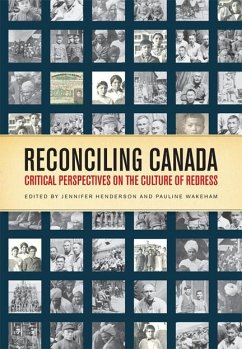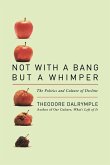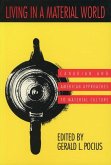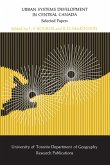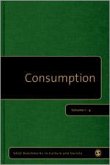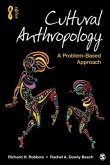Jennifer Henderson, Pauline Wakeham
Reconciling Canada
Critical Perspectives on the Culture of Redress
Jennifer Henderson, Pauline Wakeham
Reconciling Canada
Critical Perspectives on the Culture of Redress
- Broschiertes Buch
- Merkliste
- Auf die Merkliste
- Bewerten Bewerten
- Teilen
- Produkt teilen
- Produkterinnerung
- Produkterinnerung
Truth and reconciliation commissions and official governmental apologies continue to surface worldwide as mechanisms for coming to terms with human rights violations and social atrocities. As the first scholarly collection to explore the intersections and differences between a range of redress cases that have emerged in Canada in recent decades, Reconciling Canada provides readers with the contexts for understanding the phenomenon of reconciliation as it has played out in this multicultural settler state. In this volume, leading scholars in the humanities and social sciences relate…mehr
Andere Kunden interessierten sich auch für
![Not With a Bang But a Whimper Not With a Bang But a Whimper]() Theodore DalrympleNot With a Bang But a Whimper15,99 €
Theodore DalrympleNot With a Bang But a Whimper15,99 €![Living in a Material World Living in a Material World]() Living in a Material World29,99 €
Living in a Material World29,99 €![Urban Systems Development in Central Canada Urban Systems Development in Central Canada]() Urban Systems Development in Central Canada34,99 €
Urban Systems Development in Central Canada34,99 €![Applying Cultural Anthropology: An Introductory Reader Applying Cultural Anthropology: An Introductory Reader]() Aaron PodolefskyApplying Cultural Anthropology: An Introductory Reader115,99 €
Aaron PodolefskyApplying Cultural Anthropology: An Introductory Reader115,99 €![Consumption Consumption]() Consumption1.185,99 €
Consumption1.185,99 €![Arab Cultural Studies Arab Cultural Studies]() Arab Cultural Studies37,99 €
Arab Cultural Studies37,99 €![Cultural Anthropology Cultural Anthropology]() Richard H RobbinsCultural Anthropology116,99 €
Richard H RobbinsCultural Anthropology116,99 €-
-
-
Truth and reconciliation commissions and official governmental apologies continue to surface worldwide as mechanisms for coming to terms with human rights violations and social atrocities. As the first scholarly collection to explore the intersections and differences between a range of redress cases that have emerged in Canada in recent decades, Reconciling Canada provides readers with the contexts for understanding the phenomenon of reconciliation as it has played out in this multicultural settler state. In this volume, leading scholars in the humanities and social sciences relate contemporary political and social efforts to redress wrongs to the fraught history of government relations with Aboriginal and diasporic populations. The contributors offer ground-breaking perspectives on Canada’s ‘culture of redress,’ broaching questions of law and constitutional change, political coalitions, commemoration, testimony, and literatures of injury and its aftermath. Also assembled together for the first time is a collection of primary documents – including government reports, parliamentary debates, and redress movement statements – prefaced with contextual information. Reconciling Canada provides a vital and immensely relevant illumination of the dynamics of reconciliation, apology, and redress in contemporary Canada.
Produktdetails
- Produktdetails
- Verlag: University of Toronto Press
- 2nd edition
- Seitenzahl: 496
- Erscheinungstermin: 22. April 2013
- Englisch
- Abmessung: 249mm x 175mm x 32mm
- Gewicht: 954g
- ISBN-13: 9781442611689
- ISBN-10: 1442611685
- Artikelnr.: 36184870
- Herstellerkennzeichnung
- Libri GmbH
- Europaallee 1
- 36244 Bad Hersfeld
- gpsr@libri.de
- Verlag: University of Toronto Press
- 2nd edition
- Seitenzahl: 496
- Erscheinungstermin: 22. April 2013
- Englisch
- Abmessung: 249mm x 175mm x 32mm
- Gewicht: 954g
- ISBN-13: 9781442611689
- ISBN-10: 1442611685
- Artikelnr.: 36184870
- Herstellerkennzeichnung
- Libri GmbH
- Europaallee 1
- 36244 Bad Hersfeld
- gpsr@libri.de
Jennifer Henderson is an associate professor in the Departments of English and Sociology/Anthropology and the School of Canadian Studies at Carleton University.
Introduction
Jennifer Henderson (Carleton University) and Pauline Wakeham (University of
Western Ontario)
I. Settler Culture and the Terrain of Reconciliation
Matt James (University of Victoria), “Neoliberal Heritage Redress”
Eva Mackey (Carleton University), “The Apologizer’s Apology”
Jennifer Henderson, “The Camp, the School, and the Child: Discursive
Exchanges and (Neo)liberal Axioms in the Culture of Redress”
II. Citizenship, Nationhood, Law
Lily Cho (University of Western Ontario), “Redress Revisited: Citizenship
and the Chinese Canadian Head Tax”
Dale Turner (Dartmouth College), “On the Idea of Reconciliation in
Contemporary Aboriginal Politics”
James (Sa’ke’j) Youngblood Henderson (University of Saskatchewan),
“Incomprehensible Canada”
III. Testimony and Truth-Telling
Roger Simon, “Worrying Together: The Problematics of Listening and the
Educative Responsibilities of Canada’s TRC”
Julia Emberley (University of Western Ontario), “Epistemic Heterogeneity:
Indigenous Storytelling, Testimonial Practices and the Question of Violence
in Indian Residential Schools”
Dian Million (University of Washington), “Trauma, Power, and the
Therapeutic: Speaking Psychotherapeutic Narratives in an Era of Indigenous
Human Rights”
IV. Grieving and Grievance, Mourning and Memory
Amber Dean (McMaster University), “Public Mourning and the Culture of
Redress: Mayerthorpe, Air India, and Murdered or Missing Aboriginal Women”
Lindy Ledohowski (Carleton University), “The compulsion to tell falls on
the next generation’: Ukrainian-Canadian Literature in English and Victims
of the Past”
V. Performing Redress
Len Findlay (University of Saskatchewan), “Redress Rehearsals: Legal
Warrior, COSMOSQUAW, and the National Aboriginal Achievement Awards”
Anna Carastathis, “The Non-Performativity of Reconciliation: The Case of
‘Reasonable Accommodation’ in Quebec”
VI. Redress and Transnationalism: Thinking Apology Beyond the Nation
Roy Miki (Simon Fraser University), “Rewiring Critical Affects: Reading
‘Asian Canadian’ in the Transnational Sites of Kerri Sakamoto’s One Hundred
Million Hearts”
Pauline Wakeham, “From Rendition to Redress: Maher Arar, Apology, and
Exceptionality”
Appendices
A. Aboriginal Peoples and Residential Schools
1. Report on Industrial Schools for Indians and Half-Breeds, 1879
2. Testimony of Duncan Campbell Scott, 1920
3. Duncan Campbell Scott, Notes on Indian Education, 1920
4. An Act to Amend the Indian Act, 1920
5. Confession of the Presbyterian Church, 1994
6. Notes for an Address by the Honourable Jane Stewart, 1998
7. Open Letter from Chief Phil Fontaine, 2008
8. House of Commons Apology, 2008
B. Acadian Deportations
1. Petition to Governor of Nova Scotia from Acadian inhabitants, 1755
2. Acadian Deportation Order, 1755
3. Royal Proclamation designating “Day of Commemoration of the Great
Upheaval,” 2003
C. Black Loyalist and Africville Injustices
1. Nova Scotia Resolution, 1834
2. A Redevelopment Study of Halifax, Nova Scotia, 1957
3. Resolution 39, 1995
4. “Lessons from Africville,” 2001
5. Report on contemporary forms of racism, racial discrimination,
xenophobia and related intolerance: Addendum Mission to Canada, 2004
6. Bill 213: An Act to Address the Historic Injustice Committed Against
the People of Africville, 2005
7. Africville Apology and Agreement to Commemorate the Historic
Community, 2010
D. Chinese Canadian Immigration Restrictions
1. The Chinese Immigration Act, 1885 and 1923
2. Draft Letter from the Chinese Consolidated Benevolent Association,
1896
3. Mack et al. v. The Attorney General of Canada, 2000
4. Open Letter from the Chinese Canadian National Council,2005
5. House of Commons Apology, 2006
E. Indian passengers on the Komagata Maru
1. An Act Respecting Immigration, 1910
2. The Court of Appeal: Re Munshi Singh, 1914
3. British Columbia Legislative Assembly Apology, 2008
4. House of Commons Motion M-469, 2008
5. Prime Minister Stephen Harper’s Apology, 2008
F. WWI Internments
1. The War Measures Act, 1914
2. Order in Council of October 28, 1914
3. Report on Internment Operations, 1914-1920
4. Internment of Persons of Ukrainian Origin Recognition Act, 2005
G. WWII Internments
1. Italian Canadian Internment
1. Defence of Canada Regulations, 1939
2. Order in Council of June 10, 1940
3. A National Shame: the Internment of Italian Canadians, brief
presented by the National Congress of Italian Canadians to Prime
Minister Brian Mulroney, 1990
4. Address by Prime Minister Brian Mulroney to the National Congress of
Italian Canadians and the Canadian ItalianBusiness Professional
Association, 1990
5. Letter from Secretary of State for Multiculturalism, 1994
6. Agreement-in-Principle between the Government of Canada and the
Italian Canadian Community, 2005
2. Japanese Canadian Internment and Relocation
1. National Emergency Transitional Powers Act, 1945
2. "We Must Fight Deportation," The New Canadian, 1945
3. Co-operative Committee on Japanese Canadians, Memorandum for The
Members of the House of Commons and Senate of Canada on The
Orders-In-Council P.C. 7355, 7356, 7357, 1946
4. National Japanese Canadian Citizens Association, Submission to Prime
Minister Re: Bird Commission, 1950
5. National Association of Japanese Canadians, Democracy Betrayed: The
Case for Redress, 1984
6. House of Commons Apology, 1988
7. Terms of Agreement Between the Government of Canada and the National
Association of Japanese Canadians, 1988
8. Emergencies Act, 1988
H. Jewish Refugees on the SS St. Louis
1. Canadian government policy brief on Jewish refugees,1938
2. Petition to allow the S.S. St. Louis to land in Canada, June 7, 1939
3. Letter between O.D. Skelton and George M. Wrong,June 19, 1939
I. Doukhobor Residential Schools
1. Righting the Wrong, report of the Ombudsman of British Columbia, 1999
2. Statement of Regret to Doukhobor Children, 2004
Jennifer Henderson (Carleton University) and Pauline Wakeham (University of
Western Ontario)
I. Settler Culture and the Terrain of Reconciliation
Matt James (University of Victoria), “Neoliberal Heritage Redress”
Eva Mackey (Carleton University), “The Apologizer’s Apology”
Jennifer Henderson, “The Camp, the School, and the Child: Discursive
Exchanges and (Neo)liberal Axioms in the Culture of Redress”
II. Citizenship, Nationhood, Law
Lily Cho (University of Western Ontario), “Redress Revisited: Citizenship
and the Chinese Canadian Head Tax”
Dale Turner (Dartmouth College), “On the Idea of Reconciliation in
Contemporary Aboriginal Politics”
James (Sa’ke’j) Youngblood Henderson (University of Saskatchewan),
“Incomprehensible Canada”
III. Testimony and Truth-Telling
Roger Simon, “Worrying Together: The Problematics of Listening and the
Educative Responsibilities of Canada’s TRC”
Julia Emberley (University of Western Ontario), “Epistemic Heterogeneity:
Indigenous Storytelling, Testimonial Practices and the Question of Violence
in Indian Residential Schools”
Dian Million (University of Washington), “Trauma, Power, and the
Therapeutic: Speaking Psychotherapeutic Narratives in an Era of Indigenous
Human Rights”
IV. Grieving and Grievance, Mourning and Memory
Amber Dean (McMaster University), “Public Mourning and the Culture of
Redress: Mayerthorpe, Air India, and Murdered or Missing Aboriginal Women”
Lindy Ledohowski (Carleton University), “The compulsion to tell falls on
the next generation’: Ukrainian-Canadian Literature in English and Victims
of the Past”
V. Performing Redress
Len Findlay (University of Saskatchewan), “Redress Rehearsals: Legal
Warrior, COSMOSQUAW, and the National Aboriginal Achievement Awards”
Anna Carastathis, “The Non-Performativity of Reconciliation: The Case of
‘Reasonable Accommodation’ in Quebec”
VI. Redress and Transnationalism: Thinking Apology Beyond the Nation
Roy Miki (Simon Fraser University), “Rewiring Critical Affects: Reading
‘Asian Canadian’ in the Transnational Sites of Kerri Sakamoto’s One Hundred
Million Hearts”
Pauline Wakeham, “From Rendition to Redress: Maher Arar, Apology, and
Exceptionality”
Appendices
A. Aboriginal Peoples and Residential Schools
1. Report on Industrial Schools for Indians and Half-Breeds, 1879
2. Testimony of Duncan Campbell Scott, 1920
3. Duncan Campbell Scott, Notes on Indian Education, 1920
4. An Act to Amend the Indian Act, 1920
5. Confession of the Presbyterian Church, 1994
6. Notes for an Address by the Honourable Jane Stewart, 1998
7. Open Letter from Chief Phil Fontaine, 2008
8. House of Commons Apology, 2008
B. Acadian Deportations
1. Petition to Governor of Nova Scotia from Acadian inhabitants, 1755
2. Acadian Deportation Order, 1755
3. Royal Proclamation designating “Day of Commemoration of the Great
Upheaval,” 2003
C. Black Loyalist and Africville Injustices
1. Nova Scotia Resolution, 1834
2. A Redevelopment Study of Halifax, Nova Scotia, 1957
3. Resolution 39, 1995
4. “Lessons from Africville,” 2001
5. Report on contemporary forms of racism, racial discrimination,
xenophobia and related intolerance: Addendum Mission to Canada, 2004
6. Bill 213: An Act to Address the Historic Injustice Committed Against
the People of Africville, 2005
7. Africville Apology and Agreement to Commemorate the Historic
Community, 2010
D. Chinese Canadian Immigration Restrictions
1. The Chinese Immigration Act, 1885 and 1923
2. Draft Letter from the Chinese Consolidated Benevolent Association,
1896
3. Mack et al. v. The Attorney General of Canada, 2000
4. Open Letter from the Chinese Canadian National Council,2005
5. House of Commons Apology, 2006
E. Indian passengers on the Komagata Maru
1. An Act Respecting Immigration, 1910
2. The Court of Appeal: Re Munshi Singh, 1914
3. British Columbia Legislative Assembly Apology, 2008
4. House of Commons Motion M-469, 2008
5. Prime Minister Stephen Harper’s Apology, 2008
F. WWI Internments
1. The War Measures Act, 1914
2. Order in Council of October 28, 1914
3. Report on Internment Operations, 1914-1920
4. Internment of Persons of Ukrainian Origin Recognition Act, 2005
G. WWII Internments
1. Italian Canadian Internment
1. Defence of Canada Regulations, 1939
2. Order in Council of June 10, 1940
3. A National Shame: the Internment of Italian Canadians, brief
presented by the National Congress of Italian Canadians to Prime
Minister Brian Mulroney, 1990
4. Address by Prime Minister Brian Mulroney to the National Congress of
Italian Canadians and the Canadian ItalianBusiness Professional
Association, 1990
5. Letter from Secretary of State for Multiculturalism, 1994
6. Agreement-in-Principle between the Government of Canada and the
Italian Canadian Community, 2005
2. Japanese Canadian Internment and Relocation
1. National Emergency Transitional Powers Act, 1945
2. "We Must Fight Deportation," The New Canadian, 1945
3. Co-operative Committee on Japanese Canadians, Memorandum for The
Members of the House of Commons and Senate of Canada on The
Orders-In-Council P.C. 7355, 7356, 7357, 1946
4. National Japanese Canadian Citizens Association, Submission to Prime
Minister Re: Bird Commission, 1950
5. National Association of Japanese Canadians, Democracy Betrayed: The
Case for Redress, 1984
6. House of Commons Apology, 1988
7. Terms of Agreement Between the Government of Canada and the National
Association of Japanese Canadians, 1988
8. Emergencies Act, 1988
H. Jewish Refugees on the SS St. Louis
1. Canadian government policy brief on Jewish refugees,1938
2. Petition to allow the S.S. St. Louis to land in Canada, June 7, 1939
3. Letter between O.D. Skelton and George M. Wrong,June 19, 1939
I. Doukhobor Residential Schools
1. Righting the Wrong, report of the Ombudsman of British Columbia, 1999
2. Statement of Regret to Doukhobor Children, 2004
Introduction
Jennifer Henderson (Carleton University) and Pauline Wakeham (University of
Western Ontario)
I. Settler Culture and the Terrain of Reconciliation
Matt James (University of Victoria), “Neoliberal Heritage Redress”
Eva Mackey (Carleton University), “The Apologizer’s Apology”
Jennifer Henderson, “The Camp, the School, and the Child: Discursive
Exchanges and (Neo)liberal Axioms in the Culture of Redress”
II. Citizenship, Nationhood, Law
Lily Cho (University of Western Ontario), “Redress Revisited: Citizenship
and the Chinese Canadian Head Tax”
Dale Turner (Dartmouth College), “On the Idea of Reconciliation in
Contemporary Aboriginal Politics”
James (Sa’ke’j) Youngblood Henderson (University of Saskatchewan),
“Incomprehensible Canada”
III. Testimony and Truth-Telling
Roger Simon, “Worrying Together: The Problematics of Listening and the
Educative Responsibilities of Canada’s TRC”
Julia Emberley (University of Western Ontario), “Epistemic Heterogeneity:
Indigenous Storytelling, Testimonial Practices and the Question of Violence
in Indian Residential Schools”
Dian Million (University of Washington), “Trauma, Power, and the
Therapeutic: Speaking Psychotherapeutic Narratives in an Era of Indigenous
Human Rights”
IV. Grieving and Grievance, Mourning and Memory
Amber Dean (McMaster University), “Public Mourning and the Culture of
Redress: Mayerthorpe, Air India, and Murdered or Missing Aboriginal Women”
Lindy Ledohowski (Carleton University), “The compulsion to tell falls on
the next generation’: Ukrainian-Canadian Literature in English and Victims
of the Past”
V. Performing Redress
Len Findlay (University of Saskatchewan), “Redress Rehearsals: Legal
Warrior, COSMOSQUAW, and the National Aboriginal Achievement Awards”
Anna Carastathis, “The Non-Performativity of Reconciliation: The Case of
‘Reasonable Accommodation’ in Quebec”
VI. Redress and Transnationalism: Thinking Apology Beyond the Nation
Roy Miki (Simon Fraser University), “Rewiring Critical Affects: Reading
‘Asian Canadian’ in the Transnational Sites of Kerri Sakamoto’s One Hundred
Million Hearts”
Pauline Wakeham, “From Rendition to Redress: Maher Arar, Apology, and
Exceptionality”
Appendices
A. Aboriginal Peoples and Residential Schools
1. Report on Industrial Schools for Indians and Half-Breeds, 1879
2. Testimony of Duncan Campbell Scott, 1920
3. Duncan Campbell Scott, Notes on Indian Education, 1920
4. An Act to Amend the Indian Act, 1920
5. Confession of the Presbyterian Church, 1994
6. Notes for an Address by the Honourable Jane Stewart, 1998
7. Open Letter from Chief Phil Fontaine, 2008
8. House of Commons Apology, 2008
B. Acadian Deportations
1. Petition to Governor of Nova Scotia from Acadian inhabitants, 1755
2. Acadian Deportation Order, 1755
3. Royal Proclamation designating “Day of Commemoration of the Great
Upheaval,” 2003
C. Black Loyalist and Africville Injustices
1. Nova Scotia Resolution, 1834
2. A Redevelopment Study of Halifax, Nova Scotia, 1957
3. Resolution 39, 1995
4. “Lessons from Africville,” 2001
5. Report on contemporary forms of racism, racial discrimination,
xenophobia and related intolerance: Addendum Mission to Canada, 2004
6. Bill 213: An Act to Address the Historic Injustice Committed Against
the People of Africville, 2005
7. Africville Apology and Agreement to Commemorate the Historic
Community, 2010
D. Chinese Canadian Immigration Restrictions
1. The Chinese Immigration Act, 1885 and 1923
2. Draft Letter from the Chinese Consolidated Benevolent Association,
1896
3. Mack et al. v. The Attorney General of Canada, 2000
4. Open Letter from the Chinese Canadian National Council,2005
5. House of Commons Apology, 2006
E. Indian passengers on the Komagata Maru
1. An Act Respecting Immigration, 1910
2. The Court of Appeal: Re Munshi Singh, 1914
3. British Columbia Legislative Assembly Apology, 2008
4. House of Commons Motion M-469, 2008
5. Prime Minister Stephen Harper’s Apology, 2008
F. WWI Internments
1. The War Measures Act, 1914
2. Order in Council of October 28, 1914
3. Report on Internment Operations, 1914-1920
4. Internment of Persons of Ukrainian Origin Recognition Act, 2005
G. WWII Internments
1. Italian Canadian Internment
1. Defence of Canada Regulations, 1939
2. Order in Council of June 10, 1940
3. A National Shame: the Internment of Italian Canadians, brief
presented by the National Congress of Italian Canadians to Prime
Minister Brian Mulroney, 1990
4. Address by Prime Minister Brian Mulroney to the National Congress of
Italian Canadians and the Canadian ItalianBusiness Professional
Association, 1990
5. Letter from Secretary of State for Multiculturalism, 1994
6. Agreement-in-Principle between the Government of Canada and the
Italian Canadian Community, 2005
2. Japanese Canadian Internment and Relocation
1. National Emergency Transitional Powers Act, 1945
2. "We Must Fight Deportation," The New Canadian, 1945
3. Co-operative Committee on Japanese Canadians, Memorandum for The
Members of the House of Commons and Senate of Canada on The
Orders-In-Council P.C. 7355, 7356, 7357, 1946
4. National Japanese Canadian Citizens Association, Submission to Prime
Minister Re: Bird Commission, 1950
5. National Association of Japanese Canadians, Democracy Betrayed: The
Case for Redress, 1984
6. House of Commons Apology, 1988
7. Terms of Agreement Between the Government of Canada and the National
Association of Japanese Canadians, 1988
8. Emergencies Act, 1988
H. Jewish Refugees on the SS St. Louis
1. Canadian government policy brief on Jewish refugees,1938
2. Petition to allow the S.S. St. Louis to land in Canada, June 7, 1939
3. Letter between O.D. Skelton and George M. Wrong,June 19, 1939
I. Doukhobor Residential Schools
1. Righting the Wrong, report of the Ombudsman of British Columbia, 1999
2. Statement of Regret to Doukhobor Children, 2004
Jennifer Henderson (Carleton University) and Pauline Wakeham (University of
Western Ontario)
I. Settler Culture and the Terrain of Reconciliation
Matt James (University of Victoria), “Neoliberal Heritage Redress”
Eva Mackey (Carleton University), “The Apologizer’s Apology”
Jennifer Henderson, “The Camp, the School, and the Child: Discursive
Exchanges and (Neo)liberal Axioms in the Culture of Redress”
II. Citizenship, Nationhood, Law
Lily Cho (University of Western Ontario), “Redress Revisited: Citizenship
and the Chinese Canadian Head Tax”
Dale Turner (Dartmouth College), “On the Idea of Reconciliation in
Contemporary Aboriginal Politics”
James (Sa’ke’j) Youngblood Henderson (University of Saskatchewan),
“Incomprehensible Canada”
III. Testimony and Truth-Telling
Roger Simon, “Worrying Together: The Problematics of Listening and the
Educative Responsibilities of Canada’s TRC”
Julia Emberley (University of Western Ontario), “Epistemic Heterogeneity:
Indigenous Storytelling, Testimonial Practices and the Question of Violence
in Indian Residential Schools”
Dian Million (University of Washington), “Trauma, Power, and the
Therapeutic: Speaking Psychotherapeutic Narratives in an Era of Indigenous
Human Rights”
IV. Grieving and Grievance, Mourning and Memory
Amber Dean (McMaster University), “Public Mourning and the Culture of
Redress: Mayerthorpe, Air India, and Murdered or Missing Aboriginal Women”
Lindy Ledohowski (Carleton University), “The compulsion to tell falls on
the next generation’: Ukrainian-Canadian Literature in English and Victims
of the Past”
V. Performing Redress
Len Findlay (University of Saskatchewan), “Redress Rehearsals: Legal
Warrior, COSMOSQUAW, and the National Aboriginal Achievement Awards”
Anna Carastathis, “The Non-Performativity of Reconciliation: The Case of
‘Reasonable Accommodation’ in Quebec”
VI. Redress and Transnationalism: Thinking Apology Beyond the Nation
Roy Miki (Simon Fraser University), “Rewiring Critical Affects: Reading
‘Asian Canadian’ in the Transnational Sites of Kerri Sakamoto’s One Hundred
Million Hearts”
Pauline Wakeham, “From Rendition to Redress: Maher Arar, Apology, and
Exceptionality”
Appendices
A. Aboriginal Peoples and Residential Schools
1. Report on Industrial Schools for Indians and Half-Breeds, 1879
2. Testimony of Duncan Campbell Scott, 1920
3. Duncan Campbell Scott, Notes on Indian Education, 1920
4. An Act to Amend the Indian Act, 1920
5. Confession of the Presbyterian Church, 1994
6. Notes for an Address by the Honourable Jane Stewart, 1998
7. Open Letter from Chief Phil Fontaine, 2008
8. House of Commons Apology, 2008
B. Acadian Deportations
1. Petition to Governor of Nova Scotia from Acadian inhabitants, 1755
2. Acadian Deportation Order, 1755
3. Royal Proclamation designating “Day of Commemoration of the Great
Upheaval,” 2003
C. Black Loyalist and Africville Injustices
1. Nova Scotia Resolution, 1834
2. A Redevelopment Study of Halifax, Nova Scotia, 1957
3. Resolution 39, 1995
4. “Lessons from Africville,” 2001
5. Report on contemporary forms of racism, racial discrimination,
xenophobia and related intolerance: Addendum Mission to Canada, 2004
6. Bill 213: An Act to Address the Historic Injustice Committed Against
the People of Africville, 2005
7. Africville Apology and Agreement to Commemorate the Historic
Community, 2010
D. Chinese Canadian Immigration Restrictions
1. The Chinese Immigration Act, 1885 and 1923
2. Draft Letter from the Chinese Consolidated Benevolent Association,
1896
3. Mack et al. v. The Attorney General of Canada, 2000
4. Open Letter from the Chinese Canadian National Council,2005
5. House of Commons Apology, 2006
E. Indian passengers on the Komagata Maru
1. An Act Respecting Immigration, 1910
2. The Court of Appeal: Re Munshi Singh, 1914
3. British Columbia Legislative Assembly Apology, 2008
4. House of Commons Motion M-469, 2008
5. Prime Minister Stephen Harper’s Apology, 2008
F. WWI Internments
1. The War Measures Act, 1914
2. Order in Council of October 28, 1914
3. Report on Internment Operations, 1914-1920
4. Internment of Persons of Ukrainian Origin Recognition Act, 2005
G. WWII Internments
1. Italian Canadian Internment
1. Defence of Canada Regulations, 1939
2. Order in Council of June 10, 1940
3. A National Shame: the Internment of Italian Canadians, brief
presented by the National Congress of Italian Canadians to Prime
Minister Brian Mulroney, 1990
4. Address by Prime Minister Brian Mulroney to the National Congress of
Italian Canadians and the Canadian ItalianBusiness Professional
Association, 1990
5. Letter from Secretary of State for Multiculturalism, 1994
6. Agreement-in-Principle between the Government of Canada and the
Italian Canadian Community, 2005
2. Japanese Canadian Internment and Relocation
1. National Emergency Transitional Powers Act, 1945
2. "We Must Fight Deportation," The New Canadian, 1945
3. Co-operative Committee on Japanese Canadians, Memorandum for The
Members of the House of Commons and Senate of Canada on The
Orders-In-Council P.C. 7355, 7356, 7357, 1946
4. National Japanese Canadian Citizens Association, Submission to Prime
Minister Re: Bird Commission, 1950
5. National Association of Japanese Canadians, Democracy Betrayed: The
Case for Redress, 1984
6. House of Commons Apology, 1988
7. Terms of Agreement Between the Government of Canada and the National
Association of Japanese Canadians, 1988
8. Emergencies Act, 1988
H. Jewish Refugees on the SS St. Louis
1. Canadian government policy brief on Jewish refugees,1938
2. Petition to allow the S.S. St. Louis to land in Canada, June 7, 1939
3. Letter between O.D. Skelton and George M. Wrong,June 19, 1939
I. Doukhobor Residential Schools
1. Righting the Wrong, report of the Ombudsman of British Columbia, 1999
2. Statement of Regret to Doukhobor Children, 2004

